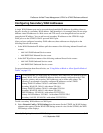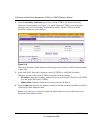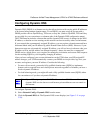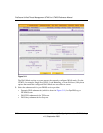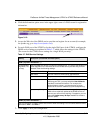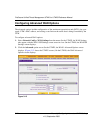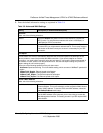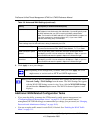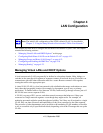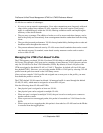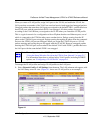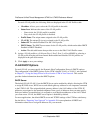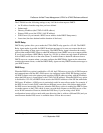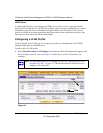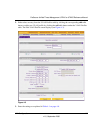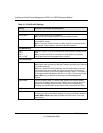
4-1
v1.0, September 2009
Chapter 4
LAN Configuration
This chapter describes how to configure the advanced LAN features of your UTM. This chapter
contains the following sections:
• “Managing Virtual LANs and DHCP Options” on this page.
• “Configuring Multi-Home LAN IPs on the Default VLAN” on page 4-11.
• “Managing Groups and Hosts (LAN Groups)” on page 4-12.
• “Configuring and Enabling the DMZ Port” on page 4-18.
• “Managing Routing” on page 4-22.
Managing Virtual LANs and DHCP Options
A local area network (LAN) can generally be defined as a broadcast domain. Hubs, bridges, or
switches in the same physical segment or segments connect all end node devices. End nodes can
communicate with each other without the need for a router. Routers connect LANs together,
routing the traffic to the appropriate port.
A virtual LAN (VLAN) is a local area network with a definition that maps workstations on some
basis other than geographic location (for example, by department, type of user, or primary
application). To enable traffic to flow between VLANs, traffic must go through a router, just as if
the VLANs were on two separate LANs.
A VLAN is a group of PCs, servers, and other network resources that behave as if they were
connected to a single network segment—even though they might not be. For example, all
marketing personnel might be spread throughout a building. Yet if they are all assigned to a single
VLAN, they can share resources and bandwidth as if they were connected to the same segment.
The resources of other departments can be invisible to the marketing VLAN members, accessible
to all, or accessible only to specified individuals, depending on how the IT manager has set up the
VLANs.
Note: The initial LAN configuration of the UTM’s default VLAN 1 is described in
Chapter 2, “Using the Setup Wizard to Provision the UTM in Your Network.”



